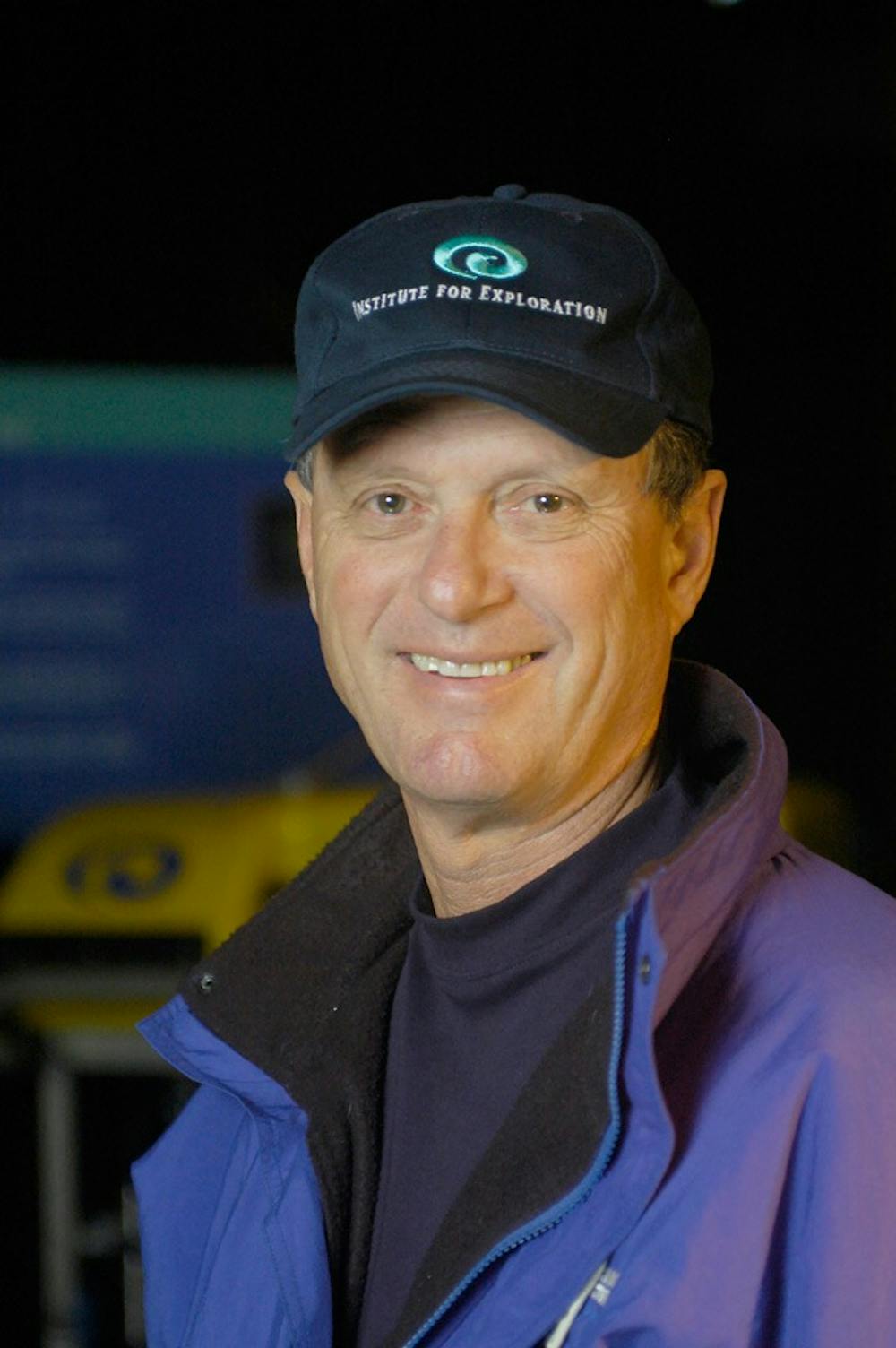It took Dr. Robert Ballard less than two weeks to find the Titanic.
The United States Navy funded a mission during the height of the Cold War to recover two nuclear powered submarines, the Thresher and the Scorpion, that were sunk in the Atlantic Ocean by the Soviet Union.
But because of tensions between the two countries, the Navy needed a cover for their search, which ended up being to search for the RMS Titanic. But Ballard, an active duty Navy intelligence on the mission, had every intention of finding both the British passenger liner that sank in the North Atlantic Ocean in 1912, as well as the submarines.
“[The Navy] said you need to do what we want you to do … and if you have any time left, which was 12 days, you can do whatever you want … I said I’m going to find the Titanic, and I did,” Ballard said.
Ballard, now a professor of oceanography and the director of the Center for Ocean Exploration at the University of Rhode Island, will be speaking in Alumni Arena on April 1 as part of the Distinguished Speaker Series. Ballard said the talk will cover the past, present and future of deep-sea exploration illustrated through his explorations.
At 72 years old, Ballard has been exploring the ocean’s dark abyss since he was 17. He’s been on about 150 explorations, doing about three every year, and he is not finished yet, he said.
Ballard said that discovering the Titanic in the summer of 1985 was “cool,” but the world already knew it “existed,” he said.
“The real discoveries are when we’re looking for something and then we find something more important,” Ballard said.
One of Ballard’s most important discoveries was the hydrothermal vents and chemosynthetic organisms living in a place no one knew existed, he said.
Ballard discovered these extremes of the ocean floor on an expedition in 1977 near the Galapagos Islands. Around these hydrothermal vents, Ballard and his crew observed that life was thriving around the 650 degree hot springs, which helped scientists better understand how life can operate at these depths.
“Plate tectonics, the discovery of new life forms, the discovery of mineral deposits or the discovery of how the ocean gets its chemistry, that’s really significant,” Ballard said. “But I love it all.”
Ballard said the portion of his Distinguished Speakers talk about the future of deep ocean exploration will focus on the Exploration Vessel (E/V) Nautilus, an exploration vehicle devised by Ballard and his team with the idea of “telepresence” as its foundation.
“Telepresence attempts to move your spirit to the bottom of the ocean while the team is exploring it,” Ballard said.
Satellite technology is used to transmit video, sensor and audio data to the shore from the E/V Nautilus in real time, according to nauiluslive.org. This data is then sent to the expedition’s mission control, which is located at the Inner Space Center (ISC) at the University of Rhode Island’s Graduate School of Oceanography.
Anyone can follow the expedition live at nautiluslive.org and it is possible to engage and interact with the team of explorers while they’re exploring, Ballard said.
“We have educators on every watch taking questions,” Ballard said. “Last deployment we took and answered 40,000 questions.”
The E/V Nautilus will be departing on April 9for a six-month journey that will start in the Gulf of Mexico and travel through the Panama Canal up the coast of California toward Alaska.
Ballard said the E/V Nautilus and its rotating crewmembers will take part in 12 different expeditions, the first of which will look at the aftermath of the British Petroleum (BP) oil spill. The crew will go down thousands of feet and look at habitats affected by the spill. Then, they will compare and contrast that to natural oil seeps in the same area, according to Ballard.
In late May the ship will go to the Galapagos Islands, where Ballard discovered new life forms and hydrothermal vents in 1977.
“We’re going back to the very spot of the chemosynthesis discovery, 35 years later, where the ocean has been spreading for 35 years to look at how it’s changed … as these giant plates move apart,” Ballard said.
Ballard said his talk at Alumni Arena on April 1 will cover many of the discoveries he has made, from the RMS Lusitania to the USS Yorktown, and where the future of deep ocean exploration is diving toward.
“See you April fools day … I really am coming,” Ballard said and laughed.
Charles W Schaab is an assistant news editor and can be contacted at charles.schaab@ubspectrum.com





